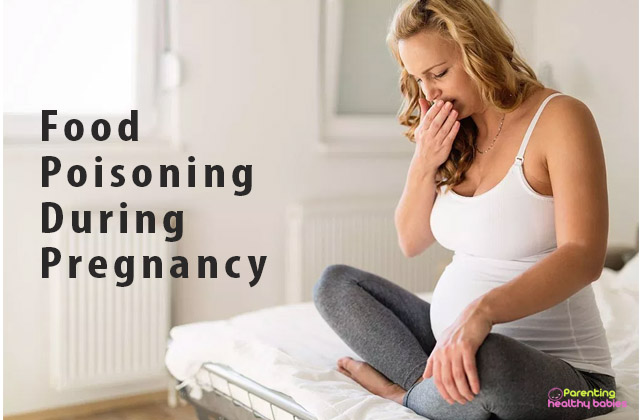Being a mother is never easy. Being a pregnant mother is the hardest, because you literally carry the responsibility of the well being of another human being. Every mom-to be wants their child to be born strong and healthy. You should be aware that the health of the child relies heavily upon the food that the mother consumes during pregnancy. The foetal brain development starts as early as three weeks into the pregnancy. Meaning, you have to be very careful from the beginning itself. Some of the most common ways in which the child gets poisoned includes bacterial and parasitic infections, along with the contact with addictive substances. Let’s see seven of the most important things you should pay attention to while carrying a child.
Food Poisoning During Pregnancy
Alcohol is a big NO
Alcohol is poison, pure and simple. Pregnant women, under no circumstances are to consume alcohol. It crosses the placenta easily and remains in the blood of the child far more than it does in the mother. There is a high risk ok the child falling under FASD, meaning Foetal Alcohol Spectrum Disorders. It prevents the brain development of the child, and results in abnormal behaviours such as learning disabilities and other impairments to irreversible mental retardation in the child. Also, there is a high probability of the child showing withdrawal symptoms if alcohol is consumed throughout pregnancy. Not even moderate consummation of alcohol is safe. To have a healthy baby, say goodbye to all kind of alcohol beverages.
Say no to caffeine
Have you ever thought why it is easier to stay awake with caffeine in your system? That’s because caffeine acts as a stimulant to keep your heart rate and blood pressure up, thus making you feel energized. This is why you should avoid caffeine during pregnancy. For once, having elevated blood pressure and heart rate is not recommended during pregnancy. Second, having caffeine in its system could alter the sleep patterns of the baby, and negatively affects the developing metabolic system of the child. Conflicting results have come out about caffeine intake during pregnancy. In some cases, it seems to result in the child being underweight, exhibiting withdrawal symptoms, and sometimes even miscarriage. Just to be safe, you are recommended to avoid all the caffeine products. Also, remember that apart from coffee, soft drinks, some medications, chocolate bars etc also contain caffeine.
Is the milk and milk products you consume unpasteurized?
Milk is a nutritious food providing the baby with enough calcium, protein, and other vitamins which are important to the overall development of the baby. Calcium is a very important constituent of bone development, and protein is absolutely unavoidable because it is building component of every single cell in the body. So, having milk in your diet provides to both these necessities of the child. But, as good as milk is for your baby, unpasteurized milk can have a counter-effect. During pasteurization, milk is heated in high temperatures to destroy harmful bacteria. Unpasteurized milk on the other hand, holds the possibility of having infectious bacteria which could result in preterm birth, still birth, or other illness in newborns. So, make sure that both the milk and milk products you use are pasteurized.
What about fish?
Fishes are rich with protein and contain omega three fatty acids which help in foetal brain development. But, while eating fish you should pay attention to the potential of mercury poisoning. High predators like sharks and sword fish contain harmful mercury substance in their cells which affects the brain, kidney, and neural system of the child. Stick to fishes like Herring, Mackerel, Sardine, Tuna etc.
Meat and meat products
While eating meat, make sure that it is properly cooked. Raw, rare, or undercooked meat contains toxic substances that could result in blindness, mental disabilities, and other complications. The same applies to eggs and seafood products such as shellfish. Do not eat them running or half-cooked. Cook it thoroughly at high temperatures until it’s steaming hot.
While refrigerating food
All of us are in the habit of refrigerating food so we could use it later. Do you know that if not properly refrigerated, there’s a very high possibility of your food being contaminated by bacteria, which directly affects the health of your child. To avoid this, make sure that the temperature is set below five degrees, and do not eat food older than a maximum of two days.
Fruits and vegetables
Fruits and vegetables are an unavoidable part of the diet, especially during pregnancy. There are a lot of myths circulating around when it comes to the kind of fruits one should eat while pregnant. The Papaya and Pineapple myths are the most famous among these. Both these fruits are believed to cause miscarriage which has never been scientifically proven. In fact, as long as the fruits are ripe, they are safe to eat. While eating vegetables, you should probably steam it before you eat, thus eradicating any possibility of catching any infection. Eating unwashed and uncooked fruits and vegetables is not recommended.
Apart from these, moderate the intake of sugar products so as to avoid gestational diabetes which affects the mental development of the child, and causes undue complexities during delivery. By paying great attention to your diet, along with proper medications of prenatal vitamins prescribed by your obstetrician, you can reduce the risk of having an unhealthy baby. Genetic disorders may still happen, but it’s different from unknowingly poisoning your child. So, have a healthy diet, and you bring that chance down to a minimal.












